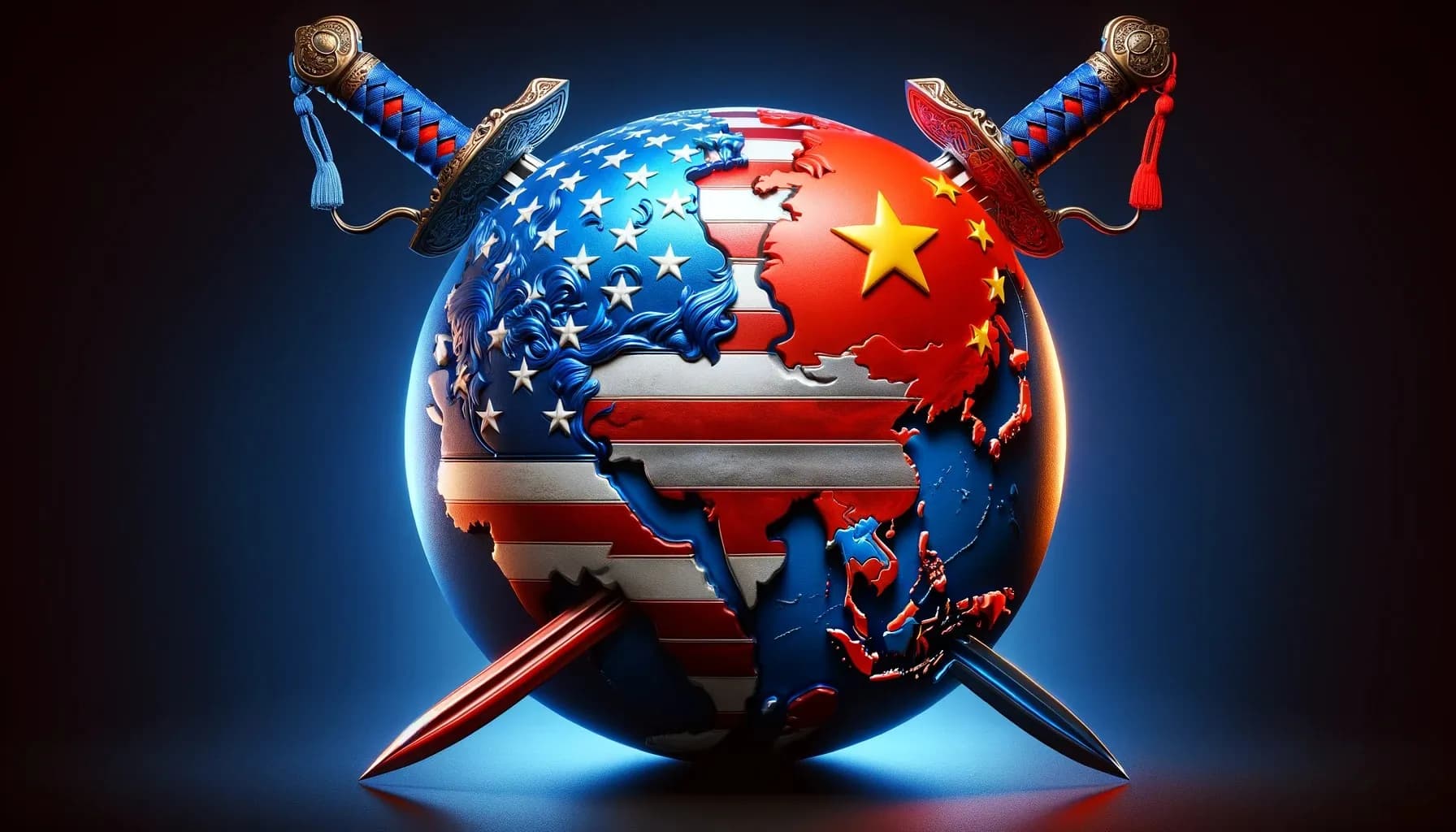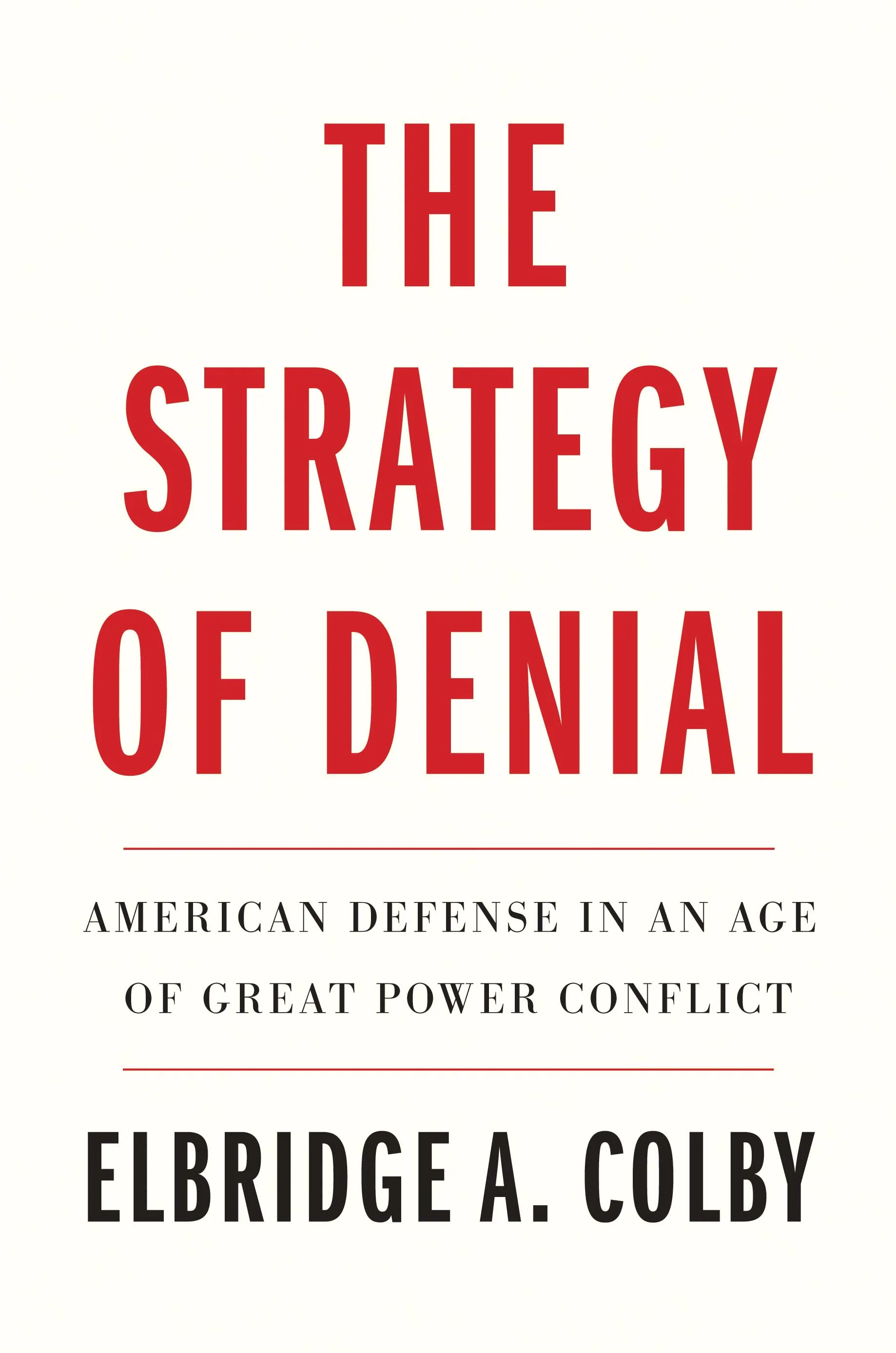Argues that the United States must prepare for a potential conflict with China over Taiwan to maintain its position as a global superpower. The book presents a comprehensive strategy for deterring Chinese aggression and preserving American hegemony in the Indo-Pacific region. It analyzes the geopolitical landscape, military capabilities, and economic factors that shape the US-China rivalry, offering a clear-eyed assessment of the challenges ahead. Provides policymakers and readers with a roadmap for navigating the complexities of great power competition in the 21st century, emphasizing the importance of alliances and strategic prioritization. Interestingly, Europe and the ongoing conflict with Russia are merely side actors in this context.

"The Strategy of Denial: American Defense in an Age of Great Power Conflict" by Elbridge A. Colby is a fascinating exploration of the geopolitical ambitions and strategies of two global heavyweights: the United States and China. Colby analyzes the dynamics and interactions between these two countries and proposes what he believes to be the most promising strategy for the USA - the strategy of denial. In times of rising geopolitical tensions, this book addresses a highly relevant topic.
The book discusses China's attempted rise to become the world's leading superpower, which inevitably entails displacing the USA from this role. The author explores China's strategic options to achieve this goal and proposes a strategy to prevent it.
He takes China's regional and, in the long term, global hegemonic claim as a given. This is an assumption that the reader must share; otherwise, the proposed strategy could be interpreted as harassment of an emerging country by an established power. However, this assumption is not really controversial, in my opinion. For those who are still not convinced, I recommend first reading a book specifically on the topic of Chinese ambitions. "The Long Game" by Rush Doshi is highly recommended, thanks to its strong focus on Chinese primary sources, making it very authentic.
The strategy aims to prevent China from dominating the Asian region and thereby establishing itself as a global power potentially threatening to the rest of the world. The interesting approach of the strategy is that it does not require the conquest of territories or a massive military and nuclear deterrence apparatus like in the Cold War. Instead, it focuses on preventing China from forcibly changing the local status quo. Since preventing something requires significantly fewer resources than changing something, there are strong asymmetric advantages for the USA and its allies. If Chinese use of force is no longer realistically promising – and thus also an implicit Chinese threat of force becomes incredible – China cannot subject neighboring states to its influence unrestrictedly. And without regional dominance in the Asian region, China cannot become a global superpower.
Colby's core message: The USA must reassess its defense strategy and realign its military infrastructure and forces to adequately counter the growing military power and geopolitical ambitions of China. Colby suggests that the USA and its allies should deny China access to critical resources and strategically relevant areas to hinder China's ability to achieve its goals through military means.
This requires targeted preparations by the US military and, above all, the formation of an "anti-hegemonic coalition," based on close, transparent, and reliable cooperation of the USA with regional allies and partners in the Asia-Pacific region. The author also illuminates possible reasons for the failure of his strategy and offers possible solutions for partial failures, such as containing a local war, should China risk one.
The strategy of denial thus limits China's influence to mere soft power. However, China could still endanger the cohesion of the "anti-hegemonic coalition" by playing its members against each other. To prevent this, increased economic engagement by the Western world in the Asia-Pacific region is necessary. A prerequisite for this is the ability of the USA to maintain or at least remain competitive economically and technologically against China.
However, Colby emphasizes that peaceful coexistence with China should not be jeopardized. He explicitly speaks out against reducing China's access to resources and markets – unless China's behavior requires economic sanctions. Instead, China should be encouraged to maintain peaceful and equitable trade relations with its neighbors and the rest of the world.
For European readers, it is particularly interesting that Colby suggests, in case of doubt, leaving Europe to fend for itself. He provocatively justifies this by saying: "If such a wealthy region is too foolish and decadent to defend itself against a Russia that is inferior in every respect, it has only itself to blame."
"The Strategy of Denial" is a recommendable book, especially for those who want to look beyond the European horizon and are interested in geostrategy and the struggle for supremacy in the Asia-Pacific region between the USA and China. At the same time, it is also an eye-opening example of how irrelevant Europe has become in the eyes of leading American thinkers – after all, the author is, among other things, a co-author of the United States' National Defense Strategy 2018.
Note: the book is only available in English but reads smoothly despite the complex subject matter.
